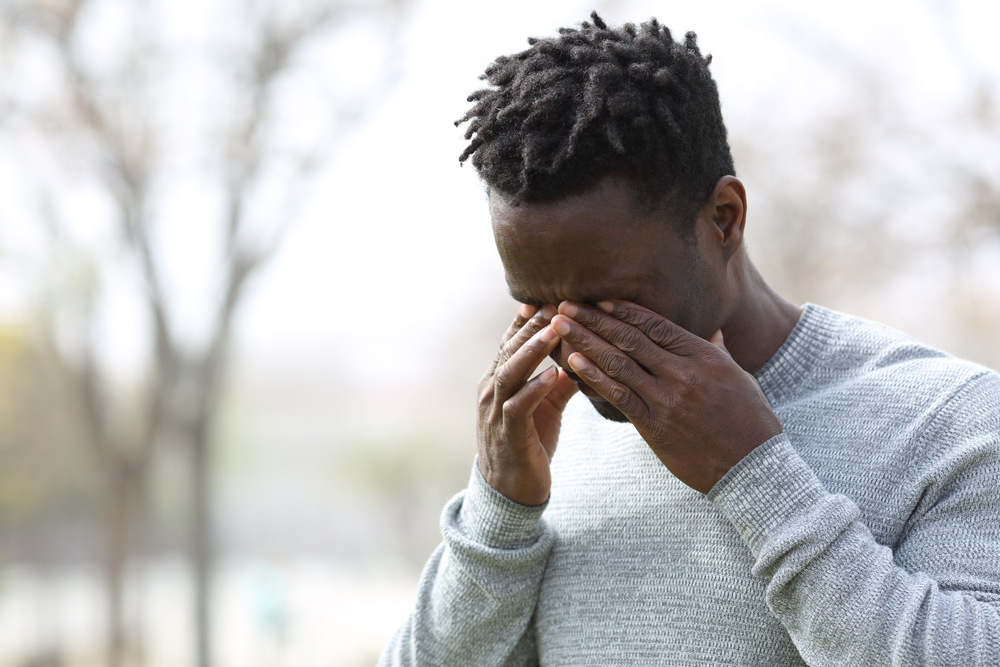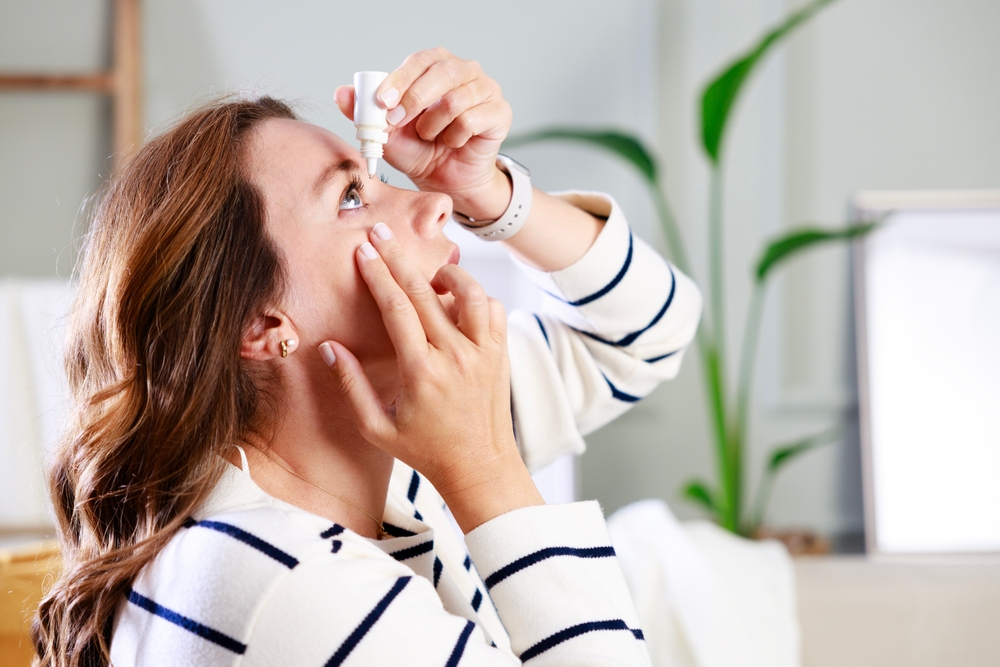Are There Lifestyle Changes That Can Help Relieve Dry Eye?
October 4, 2024
Everyone experiences occasional episodes of dry eye. Extreme weather, allergies, or mild dehydration can make your eyes feel dry and gritty.
Most of the time, the feeling passes once you rest or your environment changes. If you have chronic, recurrent symptoms of dry eyes, it might be an indication that you have dry eye disease.
Dry eye disease happens when your eyes don’t produce enough fluid for the tear film that covers the outer layers of your eyes. It can be uncomfortable or even painful.
In addition, dry eye disease can affect your vision. It can also leave eyes more vulnerable to infection or injury.
Keep reading to learn more about dry eye, including the lifestyle changes that might be able to help relieve your symptoms!
What Is Dry Eye Disease?
 Dry eye disease is a very common condition affecting millions of people. It’s caused by an imbalance of the tear film that protects the surface of your eyes.
Dry eye disease is a very common condition affecting millions of people. It’s caused by an imbalance of the tear film that protects the surface of your eyes.
The tear film is made up of three layers:
- Lipid layer, consisting of oils
- Aqueous layer, consisting of water
- Mucin layer, consisting of mucus
These three layers of tears combine to form a protective barrier over the surface of your eyes. If you don’t have the right balance of the fluids in your tear film, or your tear film is insufficient, it will cause the symptoms associated with dry eye disease.
There are several different types of dry eye disease:
Aqueous Deficient Dry Eye
Your eyes don’t produce enough aqueous tears, which come from the lacrimal gland.
Evaporative Dry Eye
Your tears evaporate too quickly. This may occur due to issues with the meibomian gland.
The meibomian gland produces the outer, oily layer of tears, which prevents the watery layer of tears from evaporating too quickly.
Mixed Dry Eye
You have both insufficient aqueous tears and insufficient oily film to prevent evaporation.
What Are the Symptoms of Dry Eye?
There are a range of symptoms caused by dry eye, including:
- Eyes feeling gritty
- Red eyes
- Burning or stinging sensation
- Itchy or sore eyes
- Eatery eyes
- Redness or swelling of eyelids
Dry eyes can also affect your vision. You might notice intermittent blurry vision.
Symptoms may come and go. You may find that your dry eye symptoms get worse during certain times of the year, or seasonal allergies may exacerbate them.
How is Dry Eye Managed?
 You may be able to manage the symptoms of dry eye at home. Using lubricating eye drops regularly can relieve discomfort and ensure that your eye stays moisturized.
You may be able to manage the symptoms of dry eye at home. Using lubricating eye drops regularly can relieve discomfort and ensure that your eye stays moisturized.
Your eye doctor can recommend eye drops for you. You may find that eye drops made without preservatives are more helpful since they are gentler on your eyes.
You can also try to avoid situations that trigger flare-ups of dry eye symptoms. You may find it helpful to write down when you have dry eye symptoms and note other details like the weather, your location, and any activities you did.
That can give you an idea of what sort of things affect your eyes. Common triggers for flare-ups of dry eyes include:
- Air conditioning
- Wind
- Exposure to dry air, such as a long airplane ride
- Long periods of screen time
- Prolonged contact lens wear
- Allergies
- Eye surgery
Other health issues can exacerbate dry eye symptoms. Certain medications, including drugs for depression, allergies, blood pressure, glaucoma, and chronic pain, can increase the risk of dry eye symptoms.
Underlying health conditions such as neurological conditions, eye conditions, autoimmune conditions, and endocrine conditions can also increase your risk of dry eye disease. Some people find that a diet rich in omega-3 fatty acids, and vitamins A, D, C and E helps reduce dry eye symptoms.
Staying hydrated can also reduce the risk of flare-ups of dry eye symptoms.
Prescription Treatments for Dry Eyes
If making changes at home and work doesn’t keep your dry eye symptoms under control, you should see your eye doctor. Symptoms of dry eye disease can be similar to other eye conditions, and it’s important to make sure you are getting appropriate treatment.
Your eye doctor can examine your eyes to confirm that dry eye is causing your symptoms and determine the root cause. You may benefit from prescription eye drops that reduce inflammation of the eyelids or cornea and make your eyes more comfortable.
Your eye doctor may also suggest prescription medication to increase tear production. In some cases, your eye doctor may suggest using small devices called punctal plugs.
These tiny plugs can be inserted into your tear ducts to prevent the loss of tears. It allows more tears to remain in the eye.
Are you struggling with dry eye symptoms? Schedule an appointment at the Center For Total Eye Care in Westminster or Eldersburg, MD, today!



